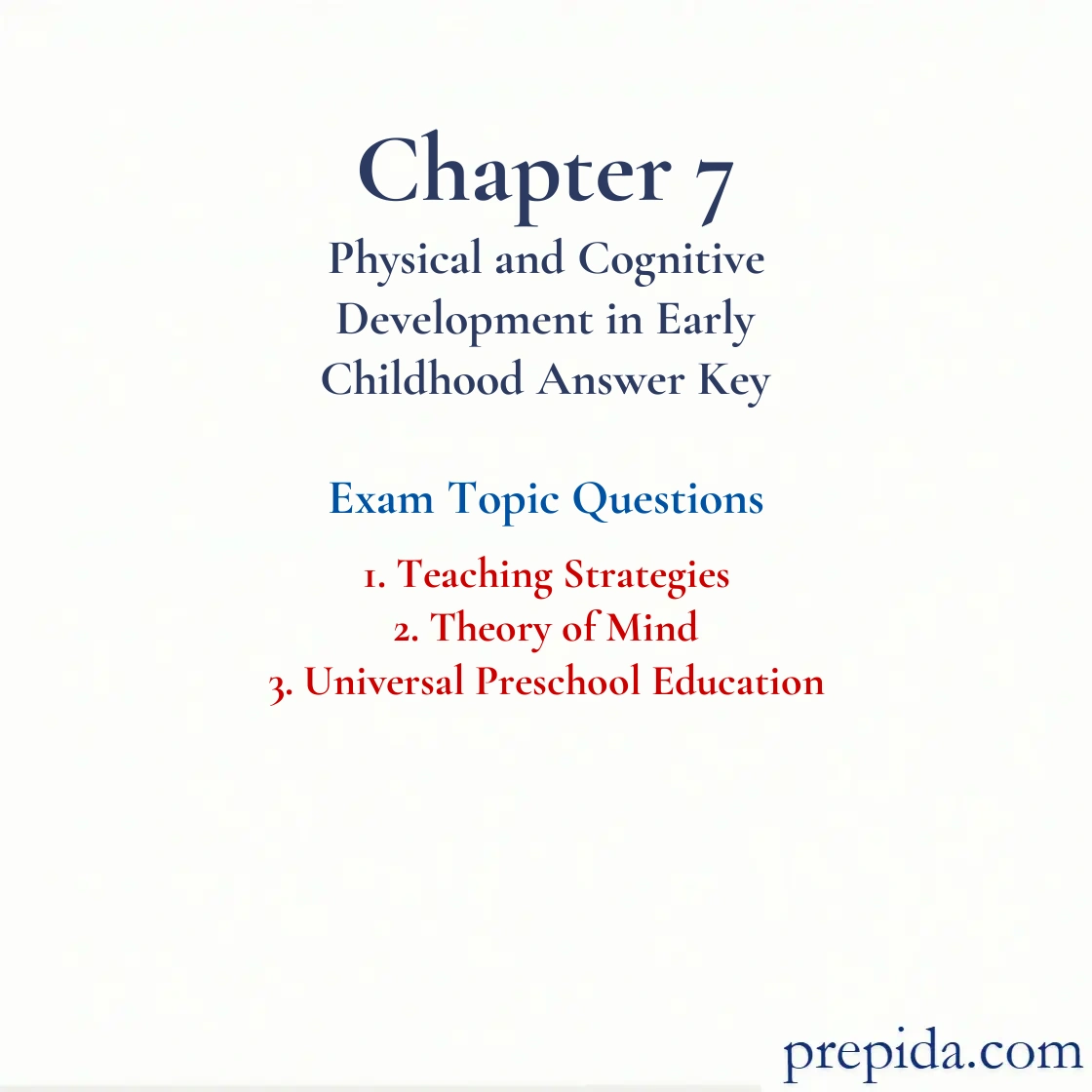
Which of the following is true of Lev Vygotsky's educational applications?
- IQ should be assessed to test a child's learning capabilities.
- A child should learn on his or her own to realize his or her capabilities.
- A child's use of private speech reflects immaturity and egocentrism.
- Teaching should begin toward the upper limit of a child's zone of proximal development.
Zone Of Proximal Development (ZPD): Vygotsky’s term for tasks that are too difficult for children to master alone but can be mastered with the assistance of adults or more-skilled children.
Which of the following scenarios best represents Lev Vygotsky's view of mental and behavioral development?
- A teacher assigns challenging tasks that students must complete on their own.
- An instructor helps students with laboratory work showing them how to do things the students cannot do yet.
- A teacher waits patiently for students to come up with good answers and assesses their learning capabilities.
- An instructor systematically offers standardized tests to students to evaluate their mental abilities on varying subjects.
Laboratory: A controlled setting in which many of the complex factors of the “real world” are removed.
According to Vygotsky, which of the following educational strategies should be incorporated in classrooms?
- making each child responsible for his or her work without relying on peers or teachers for support
- formal, standardized tests to assess children's learning
- discouraging distractions like self-talk or private talk
- offering just enough assistance to a child to accomplish a task
Strategies: Deliberate mental activities that improve the processing of information.
18-month-old Alan hates spinach but says, "Yum!" when he sees his mother eating her favorite spinach casserole. This indicates that
- he will also like spinach when he grows up.
- he recognizes that someone else may have different desires from his own.
- he has started to recognize false beliefs.
- he has started to understand that people can have ambivalent feelings.
Children begin to understand three mental states from 18 months to 3 years of age. According to Pratt and Bryant, a child realizes that looking leads to knowing what's inside a container by 3 years of age. This mental state of the child is known as ________.
- suspicion
- emotion
- desire
- perception
Perception: The interpretation of what is sensed.
From 18 months to 3 years of age, children begin to understand different mental states. According to Lempers, Flavell, and Flavell, by 2 years of age, a child recognizes that another person will see what's in front of his or her own eyes instead of what's in front of the child's eyes. This mental state is referred to as ________.
- perception
- emotion
- desire
- intellect
Perception: The interpretation of what is sensed.
The theory of ________ refers to awareness of one's own mental processes and the mental processes of others.
- self-awareness
- recognition
- mind
- consciousness
Mindset: The cognitive view, either fixed or growth, that individuals develop for themselves.
Russell conducts an experiment to study children's theory of mind. He selects participants and divides them into two groups. The first group consists of 3-year-olds, whereas the second group consists of 5-year-olds. Russell takes a box of crayons and places candies in them. He opens the box and shows it to both groups. Next, he asks the first group what a child who has never seen the box will think is actually inside the box. The group replies, "Candies!" To the same question, the second group replies, "Crayons!" This scenario illustrates that
- children refer to cognitive states earlier than they refer to desires.
- 3-year-old children have a deepening appreciation of the mind.
- 5-year-old children believe that people's behaviors necessarily reflect their thoughts and feelings.
- children younger than 4 years old do not understand that it is possible to have a false belief.
Theory Of Mind: Awareness of one’s own mental processes and the mental processes of others.
Critics of universal preschool education say that
- quality preschools prepare children for school readiness and academic success.
- it is more important to improve preschool education for young children who are disadvantaged than to fund preschool education for all 4-year-old children.
- preschool programs decrease the likelihood that once children go to elementary and secondary school they will be retained in a grade or drop out of school.
- there is a lot of pressure on young children to achieve, and universal preschool education does not provide any opportunities to actively construct knowledge.
Social Policy: A national government’s course of action designed to promote the welfare of its citizens.
Critics of universal preschool education argue that
- quality preschools prepare children for school readiness and academic success.
- research has not proven that nondisadvantaged children benefit from attending a preschool.
- the gains attributed to preschool and kindergarten education are often understated.
- quality preschool programs increase the likelihood that a child will drop out of school later.
Which of the following was cited by Zigler and his colleagues supporting universal preschool in the United States?
- It is more important to improve preschool education for young children who are disadvantaged rather than funding preschool education for all four-year-old children.
- The quality of inner-city schools has often been found to be questionable.
- Research has proven that the gains attributed to preschool and kindergarten education are often overstated.
- Universal preschool would bring cost savings on the order of billions of dollars because of a diminished need for remedial and justice services.
Social Policy: A national government’s course of action designed to promote the welfare of its citizens.